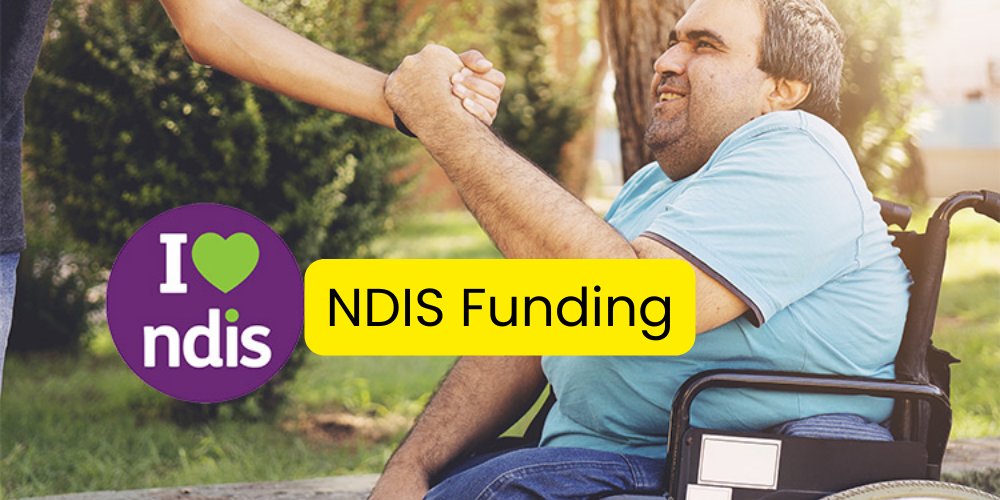The National Disability Insurance Scheme (NDIS) is a transformative program designed to provide support and assistance to Australians with disabilities. For individuals and families navigating the complexities of disability care, understanding how to access NDIS funding is crucial. In this guide, we delve into the process of applying for NDIS funding, explore the various funding categories available, shed light on NDIS transport funding, and provide insights into who can assist you in securing NDIS funding.
How to Apply for NDIS Funding
Applying for NDIS funding involves several steps, but with the right guidance, the process can be manageable and effective. Here’s a step-by-step breakdown:
Step 1: Determine Eligibility
Before applying for NDIS funding, it’s essential to determine if you or your loved one meets the eligibility criteria. Generally, individuals under 65 years of age who have a permanent and significant disability that affects their ability to participate effectively in daily activities may be eligible for NDIS support.
Step 2: Gather Documentation
To support your application, gather relevant documentation such as medical reports, assessments, and any existing support plans or statements. These documents will help assessors understand the nature and impact of the disability and determine the appropriate level of support needed.
Step 3: Complete the Access Request Form
The next step is to complete the Access Request Form, available on the NDIS website or through the NDIS contact center. Provide accurate and detailed information about the disability, functional limitations, and the support required.
Step 4: Assessment and Planning
Once your application is submitted, it will be reviewed by the NDIA (National Disability Insurance Agency). If further information or assessments are needed, they will notify you. Upon approval, you’ll work with a planner to develop your NDIS plan, outlining the supports and services you’ll receive.
Step 5: Plan Implementation
With your NDIS plan in place, you can start accessing funded supports and services as outlined in your plan. Regular reviews will ensure your plan remains relevant and meets your evolving needs.
NDIS Funding Categories
NDIS funding is allocated based on specific categories that address different aspects of disability support. Some key funding categories include:
Core Supports
Core supports cover everyday activities and help individuals with tasks like personal care, household chores, and community participation.
Capacity Building Supports
These supports aim to enhance skills, independence, and community participation. Examples include therapy services, skill development programs, and support coordination.
Capital Supports
Capital supports cover assistive technology, home modifications, and vehicle modifications necessary for daily living and mobility.
Reasonable and Necessary Supports
NDIS funding is provided for supports that are considered “reasonable and necessary” to achieve your goals and improve your quality of life.
NDIS Transport Funding
Transportation is a vital aspect of daily life, and NDIS recognizes the importance of accessible transport for individuals with disabilities. NDIS transport funding can cover:
Travel to Appointments
NDIS funding may cover travel costs to attend medical appointments, therapy sessions, or other essential services related to your disability.
Vehicle Modifications
If you require modifications to your vehicle to accommodate your disability, such as wheelchair accessibility, NDIS may provide funding for these modifications.
Community Participation
Funding can also support transport costs associated with community participation activities, social events, and recreational outings.
To access NDIS transport funding, discuss your transportation needs during your planning meetings, and include them in your NDIS plan.
Who Will Help in Getting NDIS Funding
Navigating the NDIS funding process can be overwhelming, but you don’t have to do it alone. Several organizations and professionals can assist you:
Support Coordinators
Support coordinators are experts in navigating the NDIS system. They can help you understand your plan, connect with service providers, and coordinate supports based on your needs and preferences.
Disability Advocates
Disability advocacy organizations provide advocacy, information, and support throughout the NDIS application and planning process. They can also assist with appeals and reviews if needed.
Allied Health Professionals
Occupational therapists, speech therapists, psychologists, and other allied health professionals play a crucial role in assessing your needs, developing support plans, and advocating for necessary services within the NDIS framework.
Community Support Services
Local community support services, such as disability support groups and resource centers, offer guidance, information, and practical assistance to individuals and families navigating the NDIS.
By leveraging the expertise and support of these professionals and organizations, you can navigate the NDIS funding process more effectively and ensure you receive the support and services you need.
In conclusion, accessing NDIS funding involves understanding the eligibility criteria, navigating funding categories, exploring transport options, and seeking support from knowledgeable professionals. With the right information and guidance, you can unlock the full potential of NDIS support to enhance your quality of life and achieve your goals.



